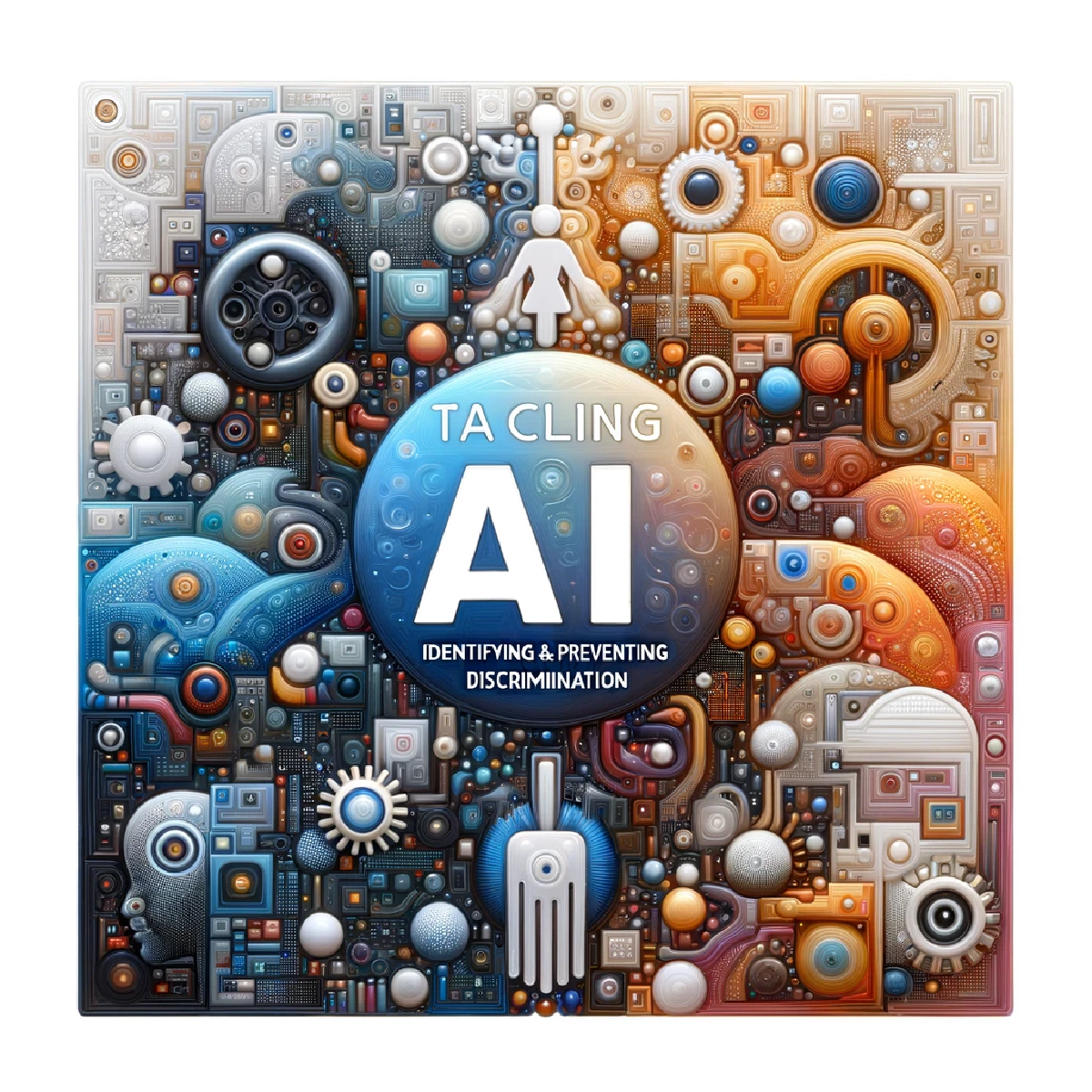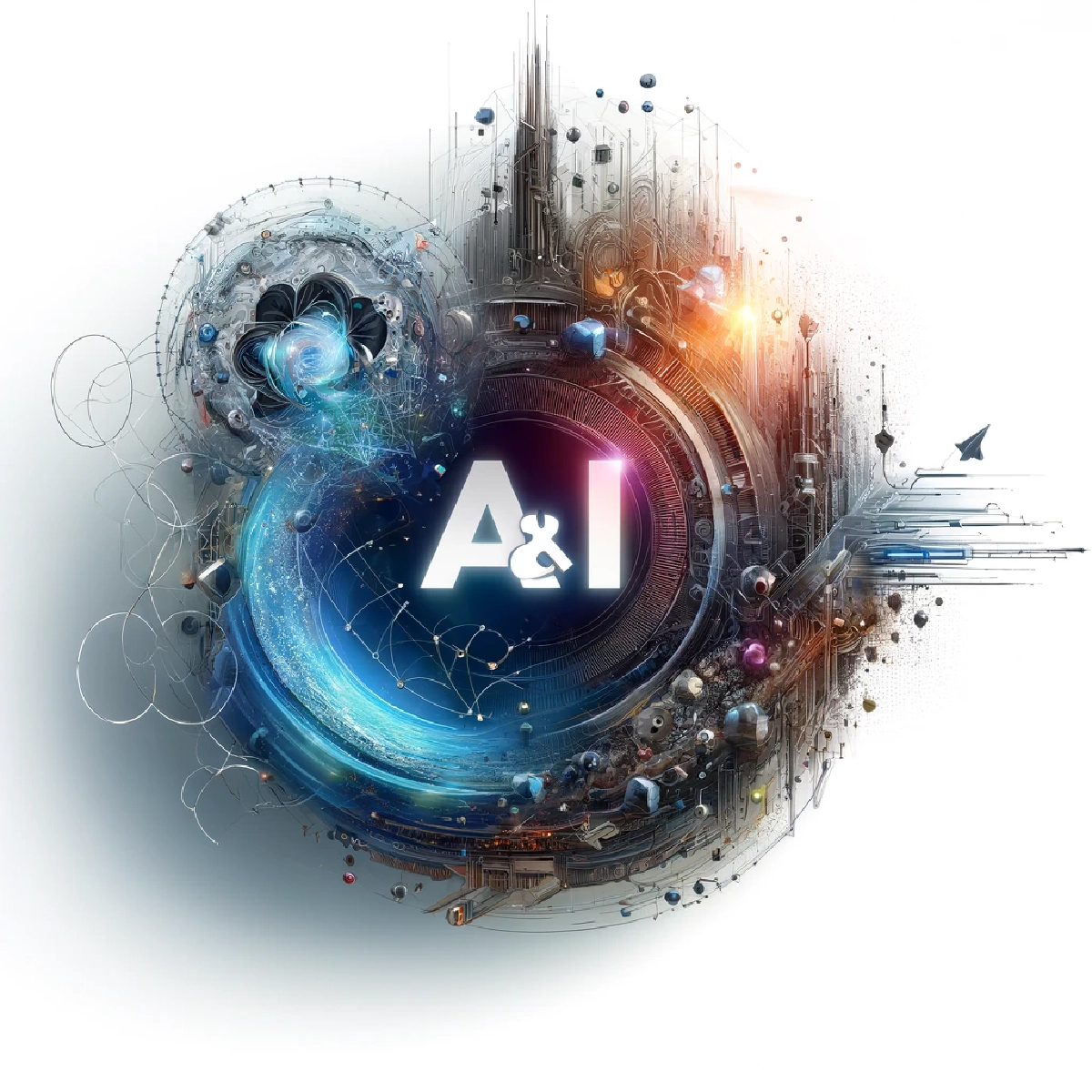
Tackling AI Bias: Identifying & Preventing Discrimination
13 Min read
Artificial intelligence (AI) has the potential to revolutionize numerous industries, but it is not without its pitfalls. …

In the digital age, small businesses face the constant challenge of competing with larger enterprises. However, the advent of artificial intelligence (AI) has leveled the playing field, offering transformative tools to enhance operational efficiency, customer engagement, and strategic decision-making. This article explores how small businesses can harness various types of AI, from machine learning to natural language processing, to not only automate routine tasks but also generate insights that drive growth
Let’s get started!
The integration of Artificial Intelligence (AI) into small business operations offers several transformative benefits that contribute markedly to their growth and efficiency. Utilizing machine learning, natural language processing, and automation tools can significantly enhance the way businesses approach project management, customer service, and marketing strategies.
Let’s take a look at the AI-driven CRM systems like Salesforce ( Salesforce CRM). How it’s useful? It allows small businesses to better understand and predict customer behaviors and preferences, leading to increased customer satisfaction and retention.
Another example - is ChatGPT. It’s extremely useful for creating conversational agents and can help in providing always-available customer support, reducing the workload on human agents while ensuring customers receive quick and relevant responses
Several types of AI technologies are particularly applicable and beneficial for small businesses looking to enhance their operations and customer experiences.
Machine Learning (ML) is one of the most widely adopted AI types, where algorithms improve automatically through experience. Small businesses use ML for predictive analytics, enhancing decision-making in inventory management and sales forecasts.
Natural Language Processing (NLP) allows businesses to analyze text data from customer feedback, social media, and emails to gain insights into customer sentiments and preferences. Tools such as MonkeyLearn ( MonkeyLearn) provide easy-to-use NLP services that automate customer service communications and market analysis.
Lastly, Automation driven by AI is crucial for your small businesses if you are aiming to streamline operations. Try tools like UIPath ( UIPath), which can automate repetitive tasks such as data entry and scheduling, freeing up valuable resources for other strategic tasks
Machine Learning (ML) stands as a cornerstone technology under the broad umbrella of AI that small businesses can leverage to dramatically enhance their decision-making, operational efficiency, and customer interactions. By utilizing ML algorithms, businesses can analyze vast amounts of data to uncover trends and patterns that would be impossible to detect manually.
For instance, ML can optimize inventory management for small retailers by predicting stock levels based on historical sales data, trends, and external factors like seasonality or economic changes. Nowadays, tools such as Google’s Vertex AI ( Vertex AI) provide customizable ML models that can be trained to suit specific business needs without requiring extensive coding expertise.
Natural Language Processing (NLP) is a powerful AI technology that enables small businesses to interpret and manage human language data effectively. NLP tools can automate customer service through chatbots that handle inquiries and support 24/7 without human intervention
Additionally, NLP facilitates sentiment analysis, where AI examines customer feedback, reviews, and social media comments to derive insights into public sentiment towards a brand or product. This capability is invaluable for small businesses in tailoring their marketing strategies and improving their products or services
By leveraging NLP, small businesses gain the ability to manage larger volumes of communication and understand their customers better, which is crucial for maintaining competitive in today’s market.
Automation, facilitated by AI, is transforming the landscape for small businesses by simplifying complex tasks and streamlining operations. This technology reduces the need for manual input in repetitive tasks, thereby increasing efficiency and allowing employees to focus on more strategic roles
By integrating automation into their processes, small businesses can operate more competitively with reduced costs and improved productivity, allowing them to scale operations effectively even with limited resources.
graph TD
A["Key Takeaways"] -->|Integration of AI| B["Transformative benefits"]
B -->|Machine Learning, Natural Language Processing, Automation| D["Customer service"]
B -->|Machine Learning, Natural Language Processing, Automation| E["Marketing strategies"]
C -->|CRM systems like Salesforce| F["Improved customer satisfaction and retention"]
D -->|ChatGPT| G["Always-available customer support"]
E -->|Machine Learning| H["Predictive analytics"]
E -->|Natural Language Processing| I["Analyzing text data"]
E -->|Automation| J["Streamlining operations"]
H -->|Google Vertex AI| K["Customizable ML models"]
I -->|Sentiment analysis| M["Tailoring marketing strategies"]
J -->|UIPath| N["Automating repetitive tasks"]
AI and small business are the two things that are easy to combine. Modern artificial intelligence offers a plethora of solutions that can help small businesses enhance various aspects of their operations
Artificial Intelligence (AI) significantly enhances the operational reliability of small businesses by automating key processes and providing data-driven insights that reduce errors and improve decision-making. AI-powered predictive maintenance can utilize machine learning algorithms to monitor equipment and predict failures before they occur
Business can use cloud for deployment of software and tools that are already available in cloud. Cloud-based AI tools like Microsoft Azure AI ( Microsoft Azure AI) facilitate real-time data processing and analytics, allowing businesses to make quick, informed decisions that bolster operational reliability
Small businesses can enhance customer service and engagement by using chatbots. These AI-driven chatbots can handle a vast array of customer queries in real-time, significantly reducing operational efforts
For instance, a small e-commerce business can deploy a chatbot that:
Chatbots not only contribute to improved customer service but also gather valuable data from interactions, which can be analyzed to gain insights into customer preferences and behaviors
As a modern technology - it can dramatically improve the software development process for small businesses by automating the writing of tests for code. This automation aids in frequently cumbersome and error-prone tasks, increasing development speed and ensuring higher code quality with minimal human intervention
For instance, Diffblue ( Diffblue) is AI-powered platform that automatically writes tests for Java code. By providing comprehensive unit tests, Diffblue assists developers in ensuring that their code performs as expected before moving to production, significantly decreasing bugs and deployment issues. This ability is particularly crucial for small IT businesses or startups whose resources might be limited, yet the demand for reliable software remains high.
AI-driven testing tools can also integrate seamlessly into existing CI/CD pipelines or even help developers to build them, leading to further easing the development process and reducing cost of development
AI revolutionizes digital marketing for small businesses, enabling targeted, efficient campaigns. For instance, HubSpot offers AI-powered marketing automation tools, customizing email campaigns based on user behavior. AdRoll optimizes ad campaigns across platforms, adjusting in real-time for better ROI. Articoolo aids content creation, optimizing for search engines, enhancing online visibility. AND MORE!
In today’s fast-paced business environment, optimizing communication is critical for small businesses to thrive, and Artificial Intelligence (AI) plays a pivotal role in enhancing these efforts.
Automating Routine Tasks: AI-driven tools like Slack integrate bots that automate routine inquiries, schedule meetings, and consolidate communications across various departments. This streamlines processes, ensuring that information flows efficiently without unnecessary delays.
Personalized Messaging: AI technologies enable personalized messaging based on customer behavior and preferences. Platforms like Twilio leverage AI to enhance customer interactions, delivering tailored messages that improve customer satisfaction and engagement.
Analyzing and Improving Interactions: AI-powered analytics platforms such as Chorus.ai analyze sales calls and customer service interactions to provide insights into communication effectiveness. These insights help businesses refine their communication strategies, leading to better customer relationships and outcomes.
By leveraging these AI tools, small businesses can streamline their internal and external communications, reduce overhead costs, and improve overall efficiency.
AI empowers small businesses to devise data-driven marketing strategies. Business owners can use machine learning to analyze content and provide topic recommendations. Alternatively - AI is useful when it comes to deep insights into consumer sentiment, crucial for tailoring strategies. Google Analytics enhances marketing efforts with behavioral insights, optimizing digital presence for better engagement and conversions.
Artificial Intelligence (AI) significantly enhances the capabilities of Customer Relationship Management (CRM) systems. AI-driven CRM platforms like ** Salesforce** can intelligently analyze customer data to offer insights into purchasing behaviors and preferences. This unlocks simple but efficient feature - personalize their communications and offerings
AI in CRM can predict customer needs based on past interactions and recommend timely outreach efforts, effectively increasing the chances of upselling or cross-selling. Predictive capability not only drives sales but also enhances customer service by ensuring that businesses can address issues proactively before they escalate.
~OR~
AI algorithms can assist in segmenting customers into distinct groups based on their behavior and value to the business. This segmentation helps in crafting more targeted marketing campaigns that resonate with each group differently, optimizing both engagement and ROI.
Machine learning is transforming the logistics and delivery processes of small businesses by optimizing routes and schedules, thereby reducing costs and improving delivery times. The industry uses AI algorithms to analyze traffic patterns, weather conditions, and customer availability to determine the most efficient delivery routes. This not only speeds up the delivery process but also decreases fuel consumption and vehicle wear and tear.
Artificial Intelligence (AI) significantly enhances the effectiveness of employee training programs in small businesses by personalizing learning experiences and measuring outcomes with precision. AI-powered platforms utilize machine learning to create adaptive learning paths that are tailored to the individual needs and skill levels of employees
For such systems - it’s crucial to integrate gamification elements into the training programs, and apply AI to adjust challenges and rewards in real-time based on the employee’s progress. This adds a lot of “dynamics” to training plus keeps employees motivated and promotes continuous learning and improvement.
It’s also common to see how AI is used for the automation of administrative tasks associated with training, such as scheduling sessions and tracking progress
The most interesting part - machine learning for small business. It’s especially useful to software companies
Artificial Intelligence (AI) has become an invaluable asset in the realm of project management for small businesses.
Automating Repetitive Tasks: AI-powered project management tools streamline repetitive tasks such as scheduling, task assignment, and progress tracking. This automation saves time and ensures efficiency in project execution.
Predictive Analytics: AI algorithms analyze project data to predict potential risks and bottlenecks, allowing proactive measures to be taken to mitigate them. This proactive approach helps small businesses avoid delays and budget overruns.
Resource Optimization: AI algorithms optimize resource allocation based on project requirements and team availability. This ensures that resources are utilized efficiently, maximizing productivity and minimizing costs.
Real-time Insights: AI-powered dashboards provide real-time insights into project progress, allowing stakeholders to make informed decisions quickly. This transparency enhances communication and collaboration among team members, leading to better project outcomes.
An example of AI-driven project management software is Monday.com ( Monday.com). This platform leverages AI to provide predictive insights on project timelines, identify potential bottlenecks before they occur, and recommend the best resource allocation strategies to ensure project deadlines are met efficiently.
Artificial Intelligence (AI) is reshaping content marketing for small businesses, enabling them to create more targeted and efficient campaigns that resonate with their audiences
Artificial Intelligence (AI) is revolutionizing content marketing for small businesses.
Content Creation: AI-powered tools like Articoolo and WordSmith generate high-quality written content quickly, from blog posts to product descriptions. These tools use natural language processing algorithms to understand the context and produce relevant and engaging content.
Content Optimization: AI algorithms analyze audience behavior and preferences to optimize content for search engines and social media platforms. This ensures that content resonates with the target audience and ranks well in search results, enhancing visibility and engagement.
Personalized Content: AI enables the creation of personalized content tailored to individual preferences and interests. By analyzing user data, AI algorithms deliver targeted content recommendations, increasing engagement and driving conversions.
Content Performance Analytics: AI-powered analytics platforms provide insights into content performance, including engagement metrics, conversion rates, and audience demographics. This data-driven approach helps small businesses refine their content strategy and produce content that resonates with their target audience.
AI also enhances content personalization, crucial for small businesses looking to stand out in a crowded market. HubSpot’s ( HubSpot) uses ai for small business marketing to tailor content to individual user preferences and behaviors, increasing the effectiveness of marketing efforts and boosting conversion rates.
Artificial intelligence for small business is transforming the field of accounting. It doesn’t mean we don’t need accountants. But, certainly, it has a major impact
Automated Bookkeeping: AI-powered accounting software automates routine tasks like transaction categorization, invoice processing, and reconciliation, reducing errors and saving time.
Expense Tracking and Forecasting: AI algorithms analyze historical data to track expenses and predict future cash flow, aiding strategic financial planning.
Fraud Detection: AI-powered systems use machine learning to detect anomalies in transactions, flagging potential fraudulent activities and protecting financial assets.
Compliance and Reporting: AI-enabled software ensures compliance with tax regulations and accounting standards, generating accurate financial reports and statements, simplifying audits, and reducing non-compliance risks.
AI solutions for small businesses have revolutionized customer service operations - it’s obvious and we bet you even used one of them or company used it against you
Chatbots: AI-powered chatbots like Zendesk and Intercom provide instant responses to customer inquiries, improving response times and enhancing customer satisfaction.
Automated Ticketing Systems: AI-driven ticketing systems streamline support ticket management, prioritizing and routing tickets to the appropriate agents based on urgency and complexity, ensuring faster resolution times.
Sentiment Analysis: AI algorithms analyze customer feedback and sentiment on social media platforms and review sites, providing insights into customer perceptions and allowing businesses to address issues proactively.
We are commonly asked - so what might be the best ai applications for small business for this and that? Well, the answer is simple but hard - depending on what you consider to be “the best” as this is multi-criteria task. Tools that are based on deep learning work better for insights, and time-series are better for trends and forecasting in general. So, we did our best to research and find tools for everyone - here is a little table. In our opinion it contains all the best AI systems for startup per category
| Tool | Description |
|---|---|
| CRM Systems | AI-powered Customer Relationship Management (CRM) systems automate customer interactions, track leads, and personalize marketing efforts. Salesforce and Zoho CRM. |
| Email Marketing Automation | Platforms like Mailchimp and Sendinblue use AI to automate email marketing campaigns, segment audiences, and personalize content, increasing open rates and conversions. |
| Predictive Analytics Tools | Tools like IBM Watson Analytics and RapidMiner leverage AI to analyze data and make predictions about future trends, helping small businesses make informed decisions and stay ahead of the competition. |
| Virtual Assistants | AI-powered virtual assistants like Google Assistant and Amazon Alexa help small businesses automate tasks, manage calendars, and access information quickly, enhancing productivity and efficiency. |
| Social Media Management | AI-driven social media management tools like Hootsuite and Buffer automate posting schedules, analyze audience engagement, and suggest content, allowing small businesses to optimize their social media presence and drive engagement. |
Generative AI can help out small businesses in various ways. For instance, it can be used to create personalized marketing materials, generate realistic product prototypes, or even assist in content creation for social media.
Yes, there are free AI tools and platforms available for small businesses. Many companies offer freemium models, providing basic AI functionalities for free with the option to upgrade to premium features. For example, OpenAI offers GPT-3.5 model for free usage through web
According to recent surveys, around 37% of small businesses in the United States have adopted AI in some form. However, the exact number may vary depending on factors such as industry, region, and technological readiness.

13 Min read
Artificial intelligence (AI) has the potential to revolutionize numerous industries, but it is not without its pitfalls. …

12 Min read
Quantum computing and artificial intelligence (AI) are two of the most revolutionary technological domains that are …
Looking for a solid engineering expertise who can make your product live? We are ready to help you!
Get in Touch